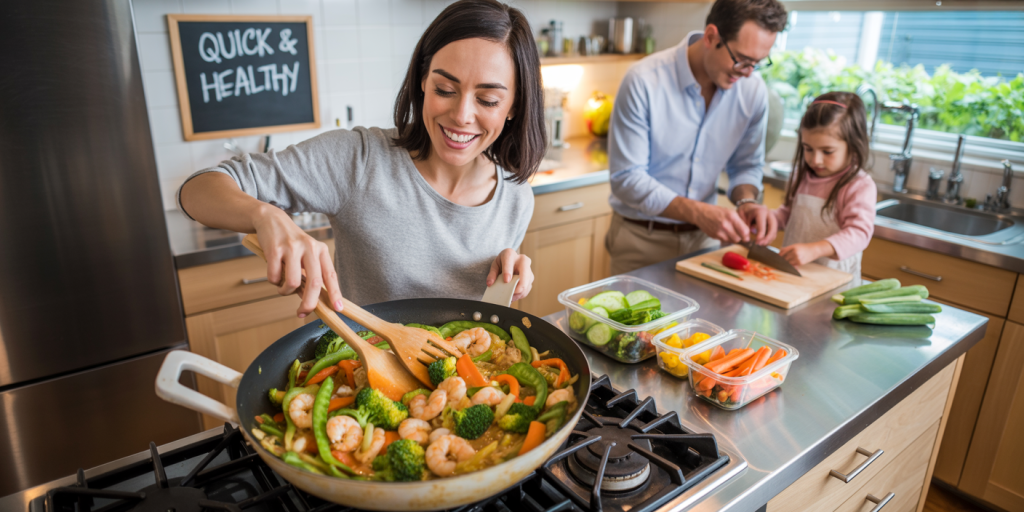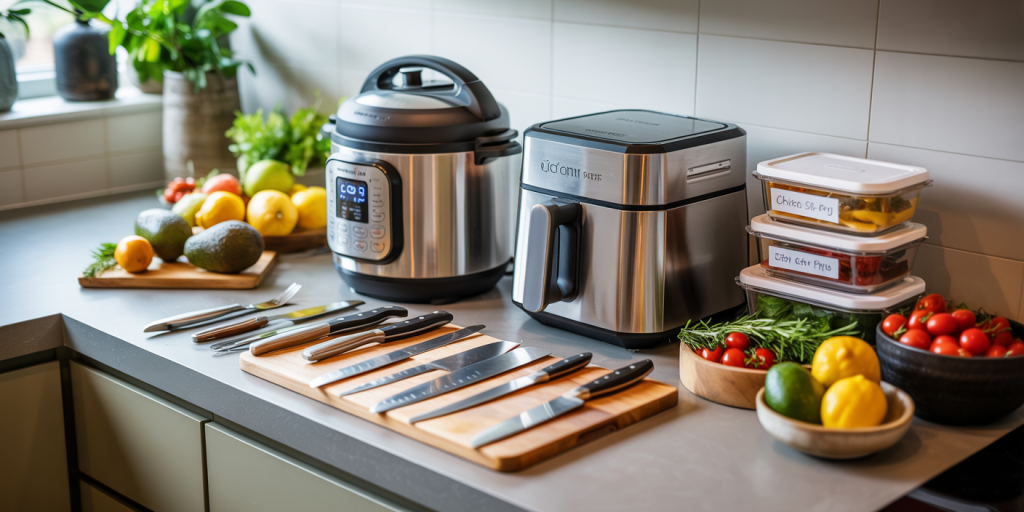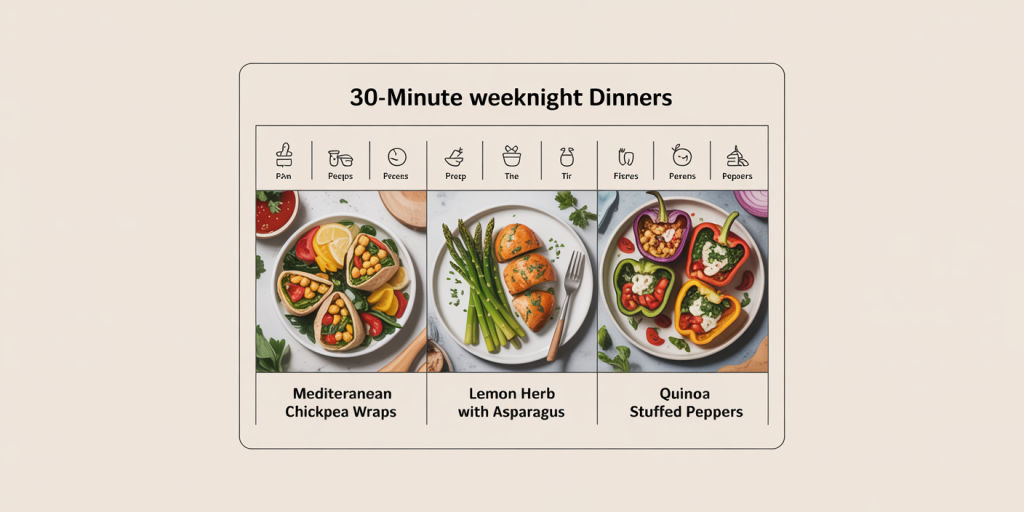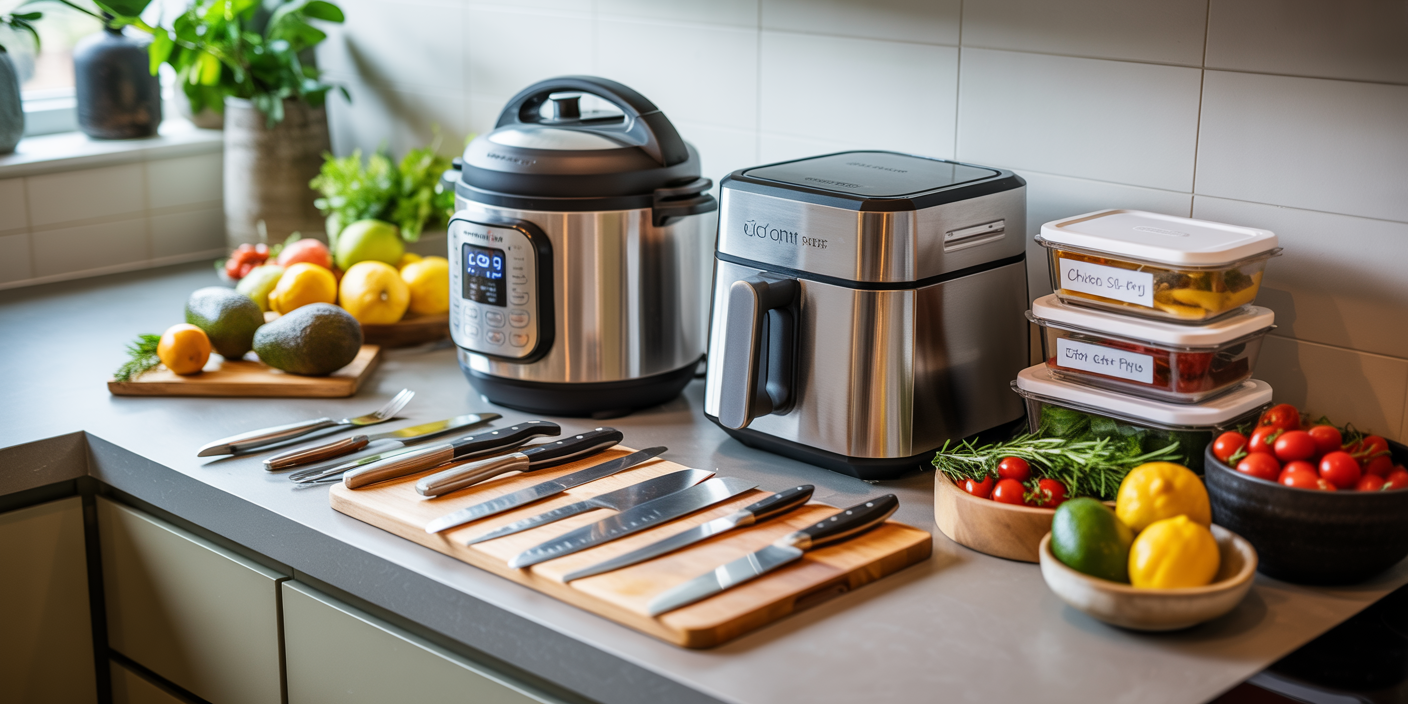In today’s fast-paced world, weekday evenings often demand swift, efficient meals without compromising nutrition or flavor. With increasingly busy schedules driven by work, family, and social commitments, spending hours in the kitchen is no longer feasible for many. According to a 2022 FoodPrint survey, 67% of Americans reported they prioritize quick dinner options on weeknights, highlighting the growing need for efficient meal preparation. The key to successful weeknight dinners lies in recipes that are not only fast but also wholesome and satisfying. This article explores practical quick recipes that can transform your weeknight cooking experience, saving time while delighting your palate.
Why Quick Weeknight Dinners Matter
Weeknights can be particularly challenging in terms of mealtime management. After a long day at work or school, most individuals want to relax and spend time with loved ones rather than being tied to the stove for hours. Research from the USDA indicates that on average, Americans spend about 37 minutes preparing and cooking food daily; however, this time can spike significantly over weekends. Streamlining dinner preparation during weekdays allows for family bonding, better relaxation, and even improved dietary choices, as fast does not have to mean unhealthy.
Quick dinners also reduce reliance on takeout and processed convenience foods, which the CDC links to higher sodium intake and worse cardiovascular health outcomes. Creating meals at home in under 30 minutes gives control over ingredients and portions, promoting better overall health. Furthermore, quicker meals reduce food spoilage by encouraging fresh produce use and planned cooking. With these benefits, it becomes evident why integrating time-efficient recipes into your weekly routine can improve lifestyle quality significantly.
Essential Tips for Efficient Weeknight Cooking
To achieve a delicious dinner in less than 30 minutes, several strategies are crucial. First, meal prepping is a game-changer. Pre-chopping vegetables, marinating proteins, or even cooking grains in advance can shave minutes off your cooking time. For example, prepping carrots, onions, and garlic in reusable containers allows quick access for multiple recipes throughout the week. Batch-cooked quinoa or rice in the fridge can be added directly to salads or stir-fries, eliminating waiting time.
Another impactful approach is investing in kitchen tools designed for speed and multitasking. Instant pots and pressure cookers can prepare meals rapidly without sacrificing flavor, particularly useful for tougher cuts of meat or legumes. Additionally, high-quality knives facilitate quicker and safer chopping, while non-stick pans reduce cleanup time. Multi-use appliances like air fryers are gaining popularity for their ability to crisp proteins and vegetables simultaneously with little oil. Adopting such tools streamlines prep and cooking processes on hectic evenings.

Finally, selecting recipes with overlapping ingredients or minimal cooking stages fosters efficiency. Stir-fries, one-pot meals, and sheet pan dinners maximize taste while minimizing the number of dishes used and steps involved. Planning for these types of meals within a weekly menu supports consistent 30-minute dinners without stress.
Top Quick Recipes for Nutritious Weeknight Meals
When discussing fast weeknight meals, it’s important to highlight recipes that blend convenience with health. Here are some real-life examples of quick recipes designed for busy families and professionals:
1. Garlic Shrimp Stir-Fry: Using peeled shrimp (which cook in 3-5 minutes), fresh bell peppers, snap peas, and a teriyaki glaze provides a nutrient-dense meal ready in approximately 20 minutes. Ready-made teriyaki sauce or a quick mix of soy sauce, honey, and ginger cuts down sauce preparation. Serve over pre-cooked brown rice for added fiber and a complete meal rich in protein and antioxidants.
2. Mediterranean Chickpea Salad Wraps: Canned chickpeas, cherry tomatoes, cucumbers, feta cheese, and spinach wrapped in whole-wheat tortillas create a fulfilling meal with minimal cooking. A burst of lemon juice and olive oil dressing enhances the flavor. Total time needed is roughly 15 minutes, making it ideal for no-cook dinner options.
3. One-Pan Lemon Herb Chicken with Asparagus: Marinated chicken breasts cooked alongside asparagus spears in the oven take about 25 minutes, with easy seasoning from lemon juice, garlic, and parsley. This recipe balances protein, healthy vegetables, and minimal cleanup.
These examples demonstrate how 30-minute recipes rely on prepped ingredients, simple cooking techniques, and emphasis on freshness and variety.
Comparative Table: Cooking Methods for 30-Minute Dinners
| Cooking Method | Average Cooking Time | Cleanup Difficulty | Nutritional Preservation | Ideal Recipes |
|---|---|---|---|---|
| Stir-Frying | 10-20 minutes | Low | High | Vegetables, Shrimp, Tofu |
| Oven Baking | 20-30 minutes | Medium | Medium | Chicken, Fish, Sheet Pan Meals |
| Instant Pot/Pressure Cooking | 15-25 minutes | Low | High | Stews, Legumes, Tough Meats |
| Salad Wrapping | 5-15 minutes | Very Low | High | No-cook meals, Wraps |
| Air Frying | 15-20 minutes | Low | High | Proteins, Frozen Veggies |
This table provides a quick overview to assist in selecting the cooking method best suited for your schedule and meal preferences when planning a quick dinner.
Balancing Speed and Nutrition: What Science Says
A common misconception is that fast meals compromise nutritional quality. However, recent dietary studies indicate that quick, well-planned meals can meet or exceed daily nutritional recommendations when made from scratch using wholesome ingredients. For instance, a 2023 study by the American Dietetic Association found that individuals who regularly consumed home-cooked meals within 30 minutes had higher intakes of vegetables, fiber, and lean proteins compared to those relying on convenience foods.
The inclusion of fresh vegetables, whole grains, and lean proteins like chicken, fish, or legumes ensures these speedy meals maintain balanced macronutrients and micronutrients. Even minimal cooking techniques, such as steaming or sautéing quickly, preserve vitamins like vitamin C and folate better than prolonged boiling or heavy processing. Using fresh herbs and spices also boosts antioxidant intake without added calories or sodium.
Moreover, quick meal preparation fosters positive behaviors such as portion control and ingredient mindfulness, associated with healthier body weight and metabolic outcomes. Thus, with adequate planning and quality ingredients, fast dinners need not sacrifice health benefits.
Planning for the Week: Sample 30-Minute Dinner Schedule
Implementing a weekly plan featuring quick recipes can make weekday dinners nearly effortless. Below is a sample plan illustrating variety, nutrient balance, and efficient cooking:
| Day | Recipe | Main Ingredients | Estimated Time |
|---|---|---|---|
| Monday | Garlic Shrimp Stir-Fry | Shrimp, bell peppers, snap peas | 20 minutes |
| Tuesday | Mediterranean Chickpea Wraps | Chickpeas, spinach, feta, whole wheat wrap | 15 minutes |
| Wednesday | One-Pan Lemon Herb Chicken | Chicken breast, asparagus, lemon | 25 minutes |
| Thursday | Air Fryer Salmon with Broccoli | Salmon fillets, broccoli florets | 20 minutes |
| Friday | Veggie-and-Quinoa Stuffed Peppers | Bell peppers, quinoa, black beans | 30 minutes |
This schedule offers busy cooks clear, time-saving meal options without repetition or nutritional gaps. Prepping some ingredients Sunday night (e.g., cooking quinoa, chopping vegetables) enhances weekday efficiency.

Looking Ahead: Future Trends in Quick Weeknight Cooking
As technology and consumer preferences evolve, quick dinner preparation methods will continue to innovate. Smart kitchen appliances integrated with AI—such as ovens that automatically adjust cooking times or refrigerators that suggest recipes based on available ingredients—are becoming more accessible. According to a 2023 report by Statista, the global smart kitchen appliance market is projected to grow by 12% annually through 2028, underscoring widespread adoption.
Additionally, meal kits and ready-to-cook options focused on healthy, fresh foods have surged, with market insights showing a 30% growth in the past five years. These kits reduce prep time drastically while offering portion-controlled and nutritionally balanced meals. Combined with digital meal planning apps, these solutions cater to time-starved consumers seeking convenience and quality.
Furthermore, growing interest in sustainable eating practices means quick meals will increasingly feature plant-based proteins and seasonal produce, optimizing both environmental impact and health outcomes. Culinary trends towards “minimalist gourmet” cooking—flavorful meals with few ingredients and rapid techniques—will likely dominate the quick dinner scene.
Embracing these advancements and shifts, weeknight quick dinners promise to become more enjoyable, accessible, and health-conscious, helping individuals meet their nutritional needs without sacrificing valuable time.
By thoughtfully combining efficient cooking strategies, nourishing ingredients, and innovative tools, preparing dinners in 30 minutes on busy weeknights is not only achievable but can be an enjoyable part of daily life. Whether you are a working professional, a parent managing family meals, or health-conscious individual, integrating quick recipes into your routine empowers you to maintain balance and wellness amid modern-day demands.


Deixe um comentário